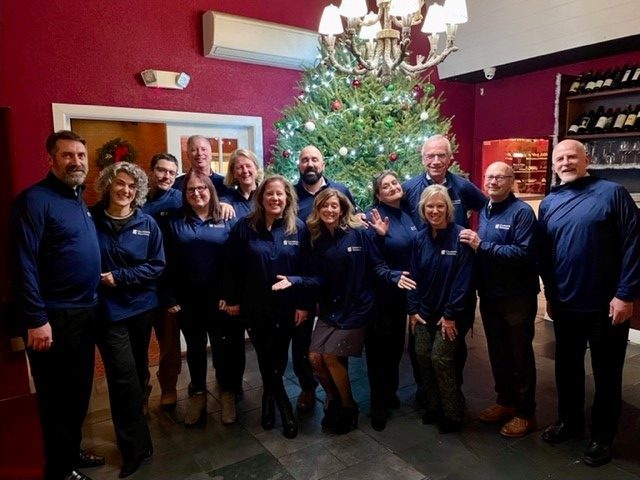Colebrook Financial Celebrates Its 20th Anniversary
A review of the events of early 2003 yields little but bad news. There were bombings in the Middle East, the space shuttle Columbia disintegrated in space with fatal consequences, and President George W. Bush and Iraqi strongman Saddam Hussein vied to see which was the toughest hombre of them all.
But amidst the chaos and angst of early 2003 was a ray of good news. On Thursday, January 2, four partners of Colebrook Financial Company unlocked the door of their office at 100 Riverview Center in Middletown, Connecticut, determined to find out whether they could earn a living making timeshare loans.
Each partner had resigned from his banking job, forsaking a steady salary, benefits, and security. For Bill Ryczek, it wasn’t the best time to abandon security. His son had begun college a few months earlier and his daughter was a senior in high school. “There’s no perfect time to launch a new venture,” Bill said recently. “But we were old enough to have some experience and young enough to have the energy for an extended run. I was dramatically underpaid in my last banking job, which turned out to be a blessing in disguise. If I was making a market salary or even close to it, it would have been a much more difficult decision to leave, and I might not have done it.”
Mark Raunikar was the youngest partner. “I was ready for a change,” he said “after working for the same company for 15 years straight out of college. I was excited but apprehensive, and had done everything I could to cut my living expenses. But I also knew I was young enough to start over if things didn’t work out like we planned.”
Linda Heller is only other original partner still active. Her role as silent partner is a little different, since she wasn’t giving up a full-time job, but she had the strongest financial statement, and if things went badly, she was likely to be the one the banks would look to first. “I had confidence in the abilities of my partners,” Linda said, “and knew about their expertise, experience, determination, and most of all their extraordinary perseverance. I was confident that we’d be successful, and my confidence has been rewarded. All of those qualities are reflected in the business we have today.”
It’s 20 years later. Bill’s children have long since graduated from college, Mark has been able to loosen his financial belt a little, and
Linda’s guaranty was never called. It turned out that the timeshare industry had room for a company large enough to make substantial loans but small enough to pick up the phone and deliver straight answers. But that was far from a certainty on that January day in 2003 when four apprehensive partners placed a heavy bet on an idea, a fragile confidence, and the optimism requisite of an entrepreneur. “When I look back at the financial results of the first year,” Bill recalled, “I think now that I probably should have been more worried than I was, but I never felt a sense of panic. We always had irons in the fire.”
Staying in business for 20 years requires continuous adaptation, especially in the dynamic timeshare industry. The past two decades have witnessed consolidation and a steep decline in the number of independent developers, the advent of points-based and travel club products and, recently, the re-purposing of older timeshare properties. A small company can be nimble, but people who’ve been in an industry for several decades can be resistant to change. Colebrook’ partners haven’t allowed old habits to inhibit new ideas, which is what’s enabled them to celebrate their 20th year in existence.
Read Full Release Here











